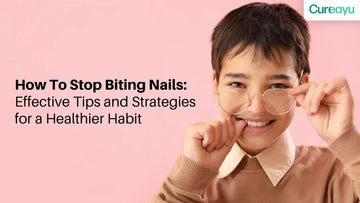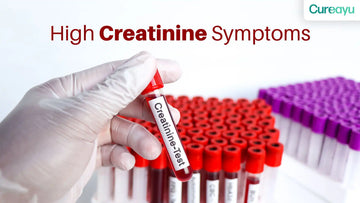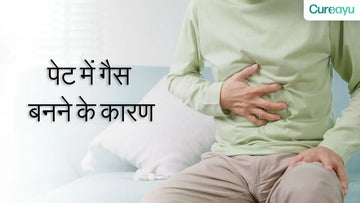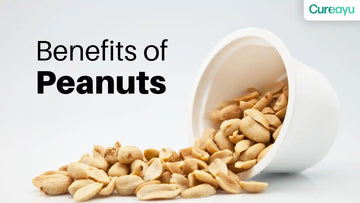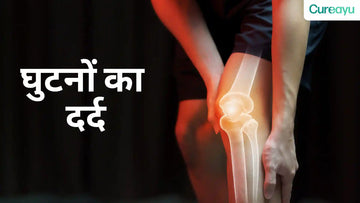Nail biting, also known as onychophagia, is a common habit that affects people of all ages. While it may seem like a harmless behavior, chronic nail biting can lead to various physical and psychological issues. Many individuals find it challenging to break this habit, often engaging in nail biting subconsciously. However, with the right strategies and a strong commitment, it is possible to overcome this habit and enjoy healthier nails and overall well-being. In this blog, we will explore the reasons why you should stop nail biting, its effects, common causes, and practical tips to help you kick the habit for good.
Also Read: Effective Home Remedies for Acidity: Natural Solutions for Quick Relief
Why To Stop Nail Biting Habit
- Health Risks: Biting your nails exposes your mouth to various bacteria and germs that accumulate under the nails, increasing the risk of infections and illnesses. These pathogens can cause gastrointestinal issues and other diseases if ingested. Maintaining nail hygiene is crucial for overall health, making it important to stop this habit.
- Dental Problems: Nail biting can cause damage to your teeth, leading to chips, cracks, and even misalignment over time. The constant pressure can wear down enamel, causing sensitivity and increasing the risk of cavities. Dental treatments for such issues can be costly and uncomfortable.
- Nail Damage: Chronic nail biting weakens the nails, making them prone to splitting, breaking, and deformities. This can result in painful hangnails and an uneven nail bed, affecting the appearance of your hands. Over time, the damage can become permanent, leading to long-term issues with nail growth.
- Pain and Discomfort: Frequent nail biting can result in sore and painful fingertips, cuticles, and surrounding skin. This can make daily tasks uncomfortable and even painful. Additionally, open sores and cuts are more susceptible to infections, compounding the discomfort.
- Embarrassment: Many individuals feel self-conscious about the appearance of their bitten nails, leading to social anxiety and embarrassment. This can affect personal and professional interactions, as people might judge the habit as a sign of nervousness or lack of self-control. Overcoming nail biting can boost self-esteem and improve social confidence.
Nail Biting Effects
- Infections: Continuous nail biting can cause infections around the nail bed and cuticles, leading to redness, swelling, and pus formation. These infections, known as paronychia, can be painful and may require medical treatment if they become severe. Preventing nail biting reduces the risk of such complications.
- Dental Issues: The constant pressure on your teeth from nail biting can cause enamel erosion, leading to tooth sensitivity and other dental problems. This can make eating and drinking uncomfortable and may necessitate dental procedures such as fillings or crowns to repair the damage.
- Skin Damage: Nail biting can cause small cuts and abrasions around the fingers, which may become infected if not properly cared for. This can lead to painful sores and the development of scars over time. Keeping your nails intact helps maintain healthy skin around your fingers.
- Poor Nail Growth: Biting your nails damages the nail bed, which can hinder proper nail growth and result in uneven, misshapen nails. This can make it difficult to achieve the appearance of well-groomed hands and nails. Healthy nail growth is essential for strong, aesthetically pleasing nails.
- Emotional Distress: The habit of nail biting can lead to feelings of guilt, shame, and frustration, impacting your mental health and self-esteem. These negative emotions can perpetuate the habit, creating a cycle that is difficult to break. Overcoming nail biting can enhance emotional well-being and confidence.
Also Read: How to Stop Sneezing: Effective Methods and Home Remedies
Nail Biting Causes
- Stress and Anxiety: Many people bite their nails as a way to cope with stress, anxiety, or nervousness. This habit can provide a temporary distraction or relief, but it ultimately exacerbates the underlying emotional issues. Finding healthier stress management techniques can help reduce nail biting.
- Boredom: Nail biting can be a way to pass the time or keep your hands busy when you are bored. This unconscious behavior often occurs when there is a lack of mental stimulation. Engaging in hobbies or activities that occupy your hands can help divert the urge to bite nails.
- Perfectionism: Some individuals bite their nails as a response to a perceived imperfection or irregularity in their nails. This compulsive need for perfect nails can lead to frequent biting and damage. Accepting minor imperfections and practicing self-compassion can help curb this behavior.
- Habitual Behavior: For many, nail biting is a deeply ingrained habit that they engage in subconsciously. It can be challenging to break this automatic behavior without conscious effort. Developing awareness and implementing intentional strategies are key to overcoming habitual nail biting.
- Genetic Predisposition: There is some evidence to suggest that nail biting can run in families, indicating a possible genetic component. This predisposition may make some individuals more susceptible to developing the habit. Recognizing this tendency can help in creating targeted interventions to stop nail biting.
How To Stop Biting Nails
- Identify Triggers: Recognize the situations or emotions that prompt you to bite your nails and find alternative ways to cope with them. Keeping a journal can help track when and why you bite your nails, making it easier to address the root causes and develop healthier habits.
- Keep Nails Trimmed: Regularly trimming your nails can reduce the temptation to bite them and minimize the damage if you do. Shorter nails are less satisfying to bite and are less likely to cause injury to the surrounding skin. Consistent nail care promotes healthier nails and fingers.
- Use Bitter Nail Polish: Apply a bitter-tasting nail polish to your nails to discourage biting. The unpleasant taste serves as a deterrent, making you more aware of the habit and helping to break the cycle. These products are widely available and easy to use.
- Wear Gloves or Bandages: Covering your nails with gloves or bandages can help break the habit by making it difficult to access your nails. This physical barrier can be particularly effective during times when you are most likely to bite your nails, such as while watching TV or reading.
- Keep Hands Busy: Engage in activities that keep your hands occupied, such as knitting, drawing, or using a stress ball. Finding a productive and enjoyable way to keep your hands busy can significantly reduce the urge to bite your nails. Experiment with different activities to find what works best for you.
- Practice Stress Management: Adopt stress-relief techniques like deep breathing, meditation, or exercise to reduce the urge to bite your nails. Managing stress effectively can help address one of the primary causes of nail biting. Incorporating these practices into your daily routine can improve overall well-being.
- Set Small Goals: Start by setting achievable goals, such as not biting your nails for a day, then gradually increase the duration. Breaking the habit into manageable steps can make the process less overwhelming and more achievable. Celebrate your progress to stay motivated.
- Reward Yourself: Celebrate your progress by rewarding yourself when you reach milestones, reinforcing the positive behavior. Treat yourself to a manicure, a favorite treat, or another reward that motivates you. Positive reinforcement can help solidify the new habit.
- Seek Professional Help: If nail biting is severe and difficult to stop, consider seeking help from a therapist or counselor who can provide strategies and support. Cognitive-behavioral therapy (CBT) and other therapeutic approaches can be effective in addressing the underlying issues and breaking the habit.
Also Read: How To Increase Concentration: Tips and Techniques for a Sharper Mind
Conclusion
Nail biting is a common habit that can have significant physical and psychological effects. By understanding the reasons behind nail biting and implementing effective strategies, you can successfully break this habit and enjoy healthier nails and improved well-being. Remember that change takes time and persistence, so be patient with yourself as you work towards overcoming nail biting. With commitment and the right approach, you can achieve beautiful, healthy nails and a greater sense of self-confidence. Embrace the journey to better nail health and overall self-care.

